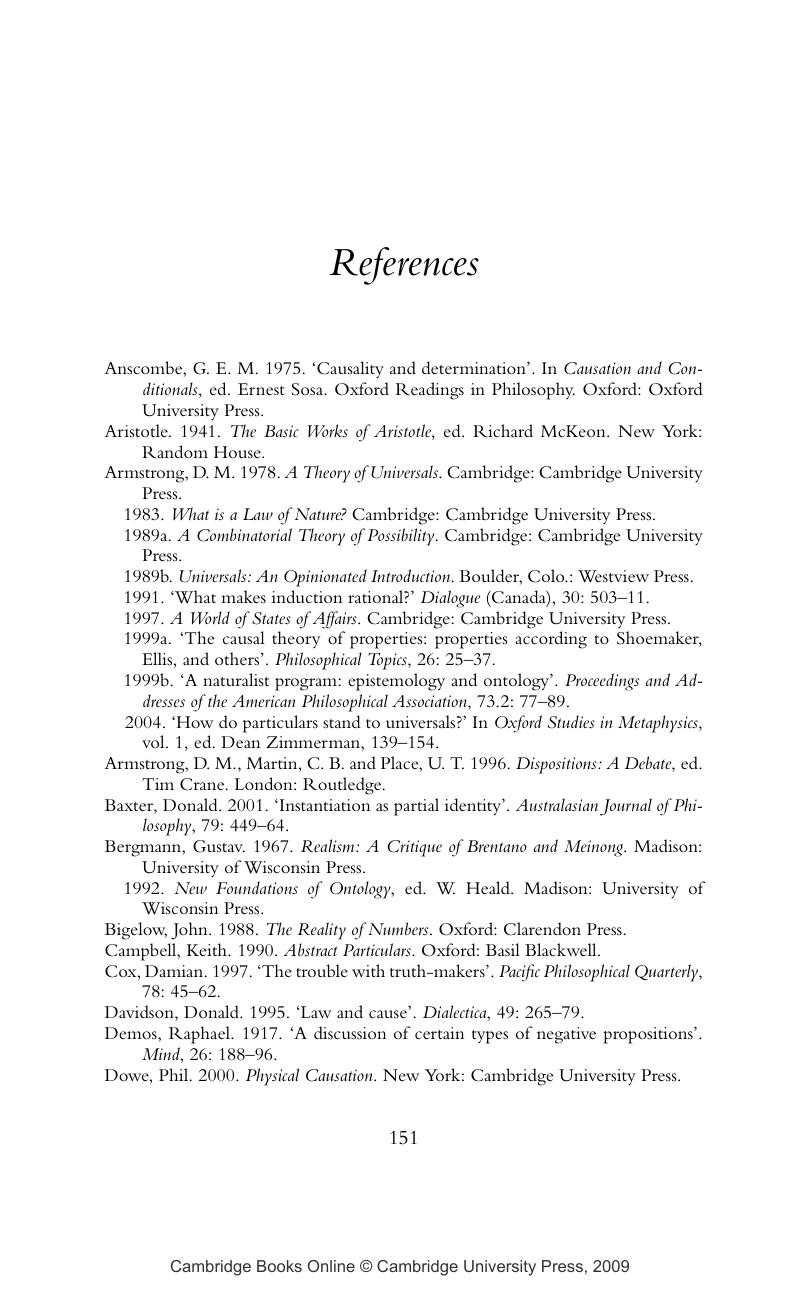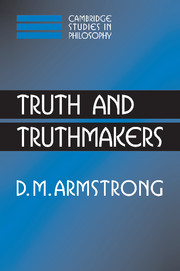Book contents
- Frontmatter
- Contents
- Preface
- 1 An introduction to truthmakers
- 2 The general theory of truthmaking
- 3 Epistemology and methodology
- 4 Properties, relations and states of affairs
- 5 Negative truths
- 6 General truths
- 7 Truthmakers for modal truths, part 1: possibility
- 8 Truthmakers for modal truths, part 2: necessity
- 9 Numbers and classes
- 10 Causes, laws and dispositions
- 11 Time
- References
- Index
- References
References
Published online by Cambridge University Press: 22 September 2009
- Frontmatter
- Contents
- Preface
- 1 An introduction to truthmakers
- 2 The general theory of truthmaking
- 3 Epistemology and methodology
- 4 Properties, relations and states of affairs
- 5 Negative truths
- 6 General truths
- 7 Truthmakers for modal truths, part 1: possibility
- 8 Truthmakers for modal truths, part 2: necessity
- 9 Numbers and classes
- 10 Causes, laws and dispositions
- 11 Time
- References
- Index
- References
Summary

- Type
- Chapter
- Information
- Truth and Truthmakers , pp. 151 - 154Publisher: Cambridge University PressPrint publication year: 2004



